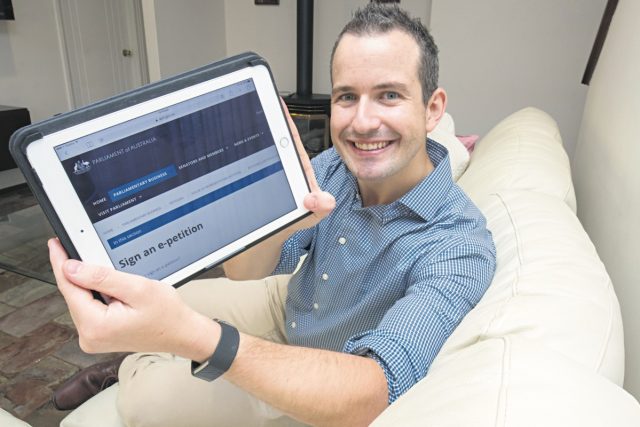
Building petitions will now be easier with the new e-petition system officially introduced into the City of Canning on Monday, July 15.
Councillor Ben Kunze raised the motion on March 20, 2018 and the council unanimously supported it for the city to first investigate and then implement e- petitions.
“I am thrilled that e-petitioning is now possible in Canning,” he said.
“In an era where people often have less time to engage in local issues, e-petitioning allows residents to raise community awareness or seek support on a particular issue online, instead of physically having to collect signatures.”
Paper petitions will still be available and residents can still engage with the city through the old fashioned way.
E-petitions requires residents to tick boxes to confirm they are eligible to the city’s terms and conditions before actually signing the petition.
This step aims to reduce the administrative burden for the city by not having to check the addresses or signatories.
While the rules still apply to hand written petitions, the terms are never provided with the petition so residents don’t know if they are eligible to sign.
Only two petitions have been received this year via the traditional way either emailed or delivered.
Within the first days of the e-petition launch there was already an e-petition received regarding CCTV subsidies with 40 signatories.
The majority of Western Australia councils haven’t introduced this new system and only a few cities like the City of Stirling and now Canning have an e- petition system.
City of Canning mayor Paul Ng said he supports the introduction of e-petitions, as he believes it is a much more accessible platform for the community.

“I think it is a great way to make the petition process more accessible and to generate awareness of the availability of petitions in general,” he said.
“By providing a more accessible platform it means that we can include more of our community in online conversations.”
Some other cities like the City of Cockburn have amended their standing order to allow change.org petitions but these do not conform to city rules and cannot be submitted.
Despite the state government having a digital strategy and an office of digital government, the state parliament doesn’t provide an online petitioning service.
Councillor Kunze believes that in the 21st century all tiers of government should provide the service.
“I am very interested to see if the number of petitions increases given residents are now able to lobby council online which reduces the burden for the community and hopefully the city’s administration,” he said.
“Anything that helps the community communicate with elected members and with the city’s administration is a good thing.
“Local Governments often struggle to engage the community through consultation with residents often not responding until work commences on a project and I expect e-petitions will be another opportunity for the community to raise awareness of certain issues in an effective manner.”
For more information contact the city.













